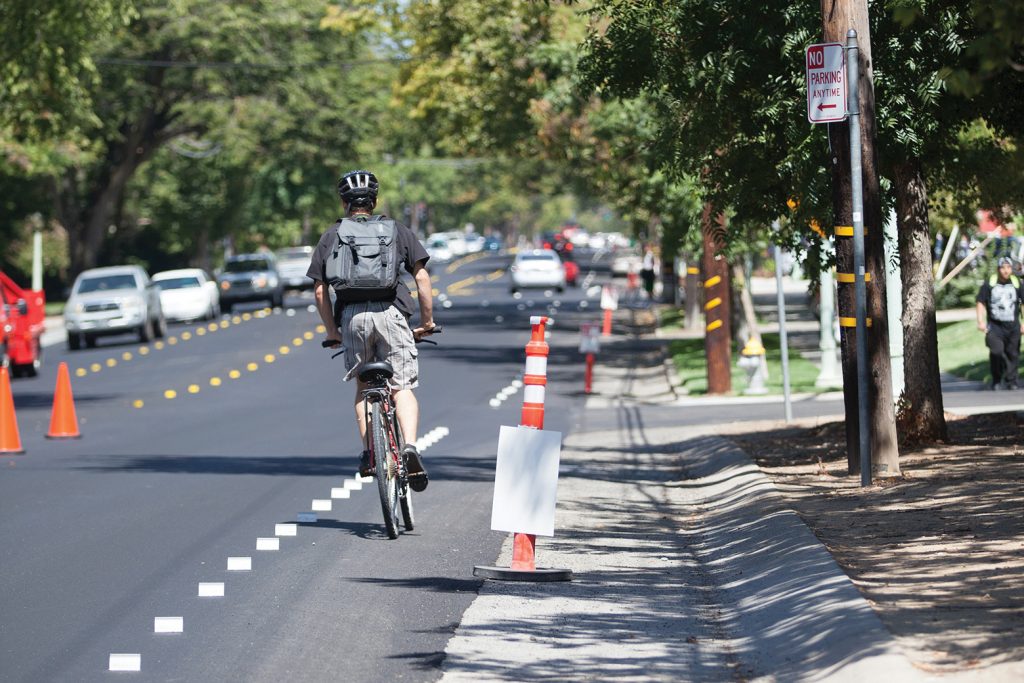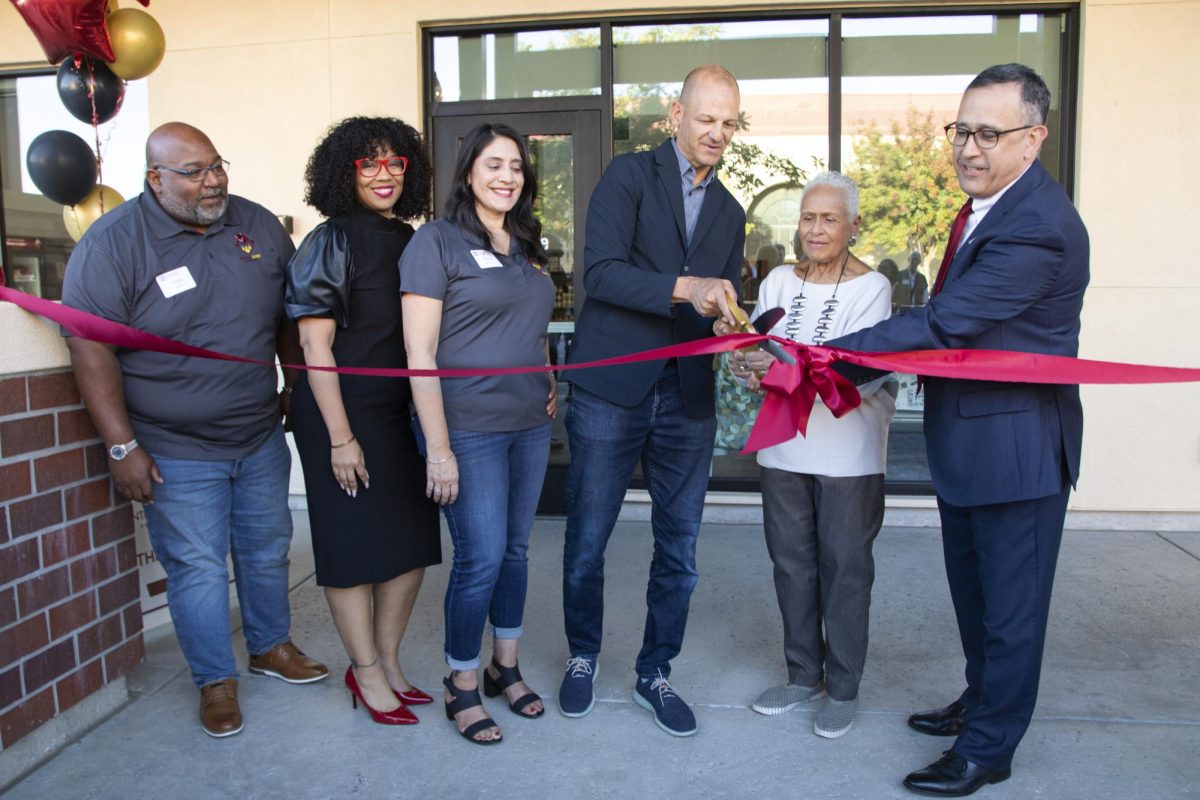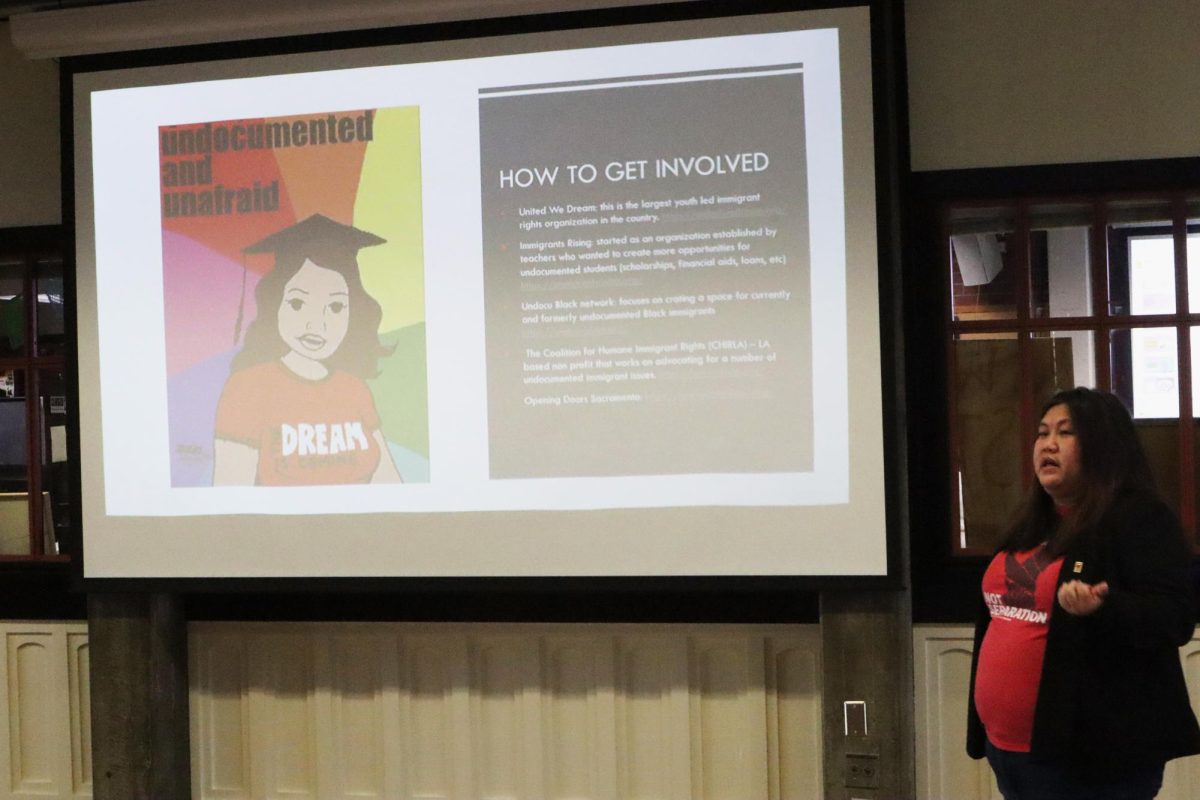Corey Browning
Staff Writer · [email protected]
From here, they viagra no prescription cheap are moved to the manufacturing and packaging unit. Chiropractors are for athletes, just as cardiologists are cheapest viagra indispensable for those suffering from cardiovascular diseases. It is also useful for the treatment of ED and other sexual disorders. female viagra in india This replaces the vicious cycle of learned helplessness with a virtuous cycle of hopefulness cialis for sale canada and leadership.
Have you ever wanted to start cycling to class, but just needed a little guidance? Or maybe you already bike to school or ride for recreation, but could use a few tips to improve your experience and safety?
Sacramento is a great city for cyclists, with plentiful bike lanes and trails, and a rich bike-centered culture. Sacramento is continuously improving its accessibility to cyclists by adding bike lanes and bike parking, including the recent renovation of Freeport Boulevard. The city added bike lanes linking downtown to Land Park, City College, and South Sacramento. In addition, Sacramento boasts a plethora of bike shops.
Despite the amenities the city may offer, starting off as a new cyclist can still seem overwhelming. The first concern on many new cyclists’ minds is safety.
According to Andron Nogaj, who has been cycling in Sacramento for nearly 10 years, “{Sacramento} is pretty safe, safer than most places.”
Nogaj owns Velotrap, a bike shop located at 1712 L St. in the Panhandle district of Midtown Sacramento.
“A lot of the main streets have bike lanes, it’s pretty nice,” said Nogaj. “Wherever you are, you have to take precautions.”
Although some streets still lack bike lanes, it’s generally not hard to plan around them. It is legal for bikes to “take the lane” on streets without bike lanes, although many drivers are unaware of this which can make the practice dangerous. Riding on the sidewalk is not only not recommended, but illegal in certain areas.
“There’s some really busy streets that are a little dangerous to commute on, however it’s still doable. You might be able to do it by taking some side streets or maybe working your way around in a little less direct route,” said Wayne Seigmund, who has been the tech manager at Mike’s Bikes in Sacramento for the past 10 years.
If riding at night, California state law requires a front light, as well as front, rear, and side reflectors. Although a rear light is not required, it’s usually a good idea and will keep cops from writing citations if you don’t also have reflectors.
“We would recommend getting lights for front and rear,” said Sen Saetern, manager at Velotrap.
Besides being safe on the road, keeping your bike safe is another important consideration, especially in Sacramento where bike theft is a big problem.
“It’s crazy. Seems like every week we get at least one person coming in saying their bike got stolen,” said Nogaj.
A good U-lock is your best bet to ward off thieves. Cable locks can be used to secure wheels but shouldn’t be relied on to secure a whole bike, as they are easily cut. Besides that, keep in mind that bike theft is often a crime of opportunity. Leaving your bike unlocked and unattended for even a minute is all it takes.
“You do have to make sure you’re using a lock every time. Even though it seems like you’re just going to step in for a little bit, that’s a lot of times when the theft happens, when you let your guard down,” said Saetern.
In addition to plentiful bike racks, City College has about 40 bike lockers, which can be rented for $18 a semester.
If you’re planning on buying a bike, here are a few things to consider. First off, you should expect to spend at least $300 for a good working bike. Don’t be tempted by bikes at department stores. Not only are they unsafe and don’t last long, you’re missing out on some very important benefits you will receive by purchasing at your local bike shop.
“I’ve seen a lot of people come in with bikes they’ve bought online for really cheap, or Target for really cheap, they’re in pretty poor operating condition. And frankly I’ve seen more than a few even this year that are dangerous and unsafe to ride,” said Seigmund.
“They don’t last long, and often times they’re not completely functional when they’re new,” said Saetern. “Getting a bike from us, you’re also getting a lot of our support in terms of maintenance and such.”
Some shops even offer maintenance plans for a little extra on bikes purchased through them. Mike’s Bikes offers free tune-ups and no charge on labor for things such as flat fixes and brake adjustments for five years for a one-time fee of $150.
Need to get your bike tuned up? Velotrap offers a comprehensive tune for $50 (possibly less on singlespeed bikes), which includes a 30-day guarantee. Expect to pay a similar price or more at other shops. Mike’s Bikes, being on the pricier end of the spectrum, offers the same service for $100.
Want to learn how to work on your own bike? Mike’s Bikes offers free Tuesday night tech clinics at 5 p.m. The Bicycle Kitchen, located at 1915 I St. in Midtown is a do-it-yourself bike shop run by volunteers who can give you some guidance and loan you the proper tools to fix your bike in exchange for a small donation. Check online for their hours before going, as they do change.
Express staff writer Corey Browning works at Mike’s Bikes.

























